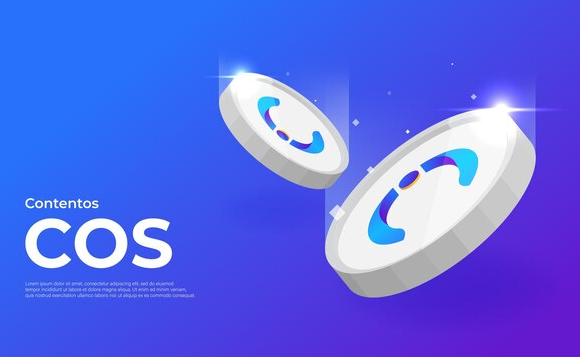-
 Bitcoin
Bitcoin $93,766.8679
-6.50% -
 Ethereum
Ethereum $2,499.2143
-19.87% -
 Tether USDt
Tether USDt $1.0006
0.05% -
 XRP
XRP $2.2575
-22.07% -
 Solana
Solana $195.0092
-7.91% -
 BNB
BNB $559.2407
-14.97% -
 USDC
USDC $1.0003
0.02% -
 Dogecoin
Dogecoin $0.2345
-22.76% -
 Cardano
Cardano $0.6710
-24.49% -
 TRON
TRON $0.2173
-10.30% -
 Chainlink
Chainlink $18.0239
-20.88% -
 Avalanche
Avalanche $24.0548
-23.25% -
 Stellar
Stellar $0.3175
-18.57% -
 Sui
Sui $3.0584
-17.76% -
 UNUS SED LEO
UNUS SED LEO $9.7028
-0.50% -
 Toncoin
Toncoin $3.5646
-22.67% -
 Hedera
Hedera $0.2213
-21.93% -
 Shiba Inu
Shiba Inu $0.0...01364
-22.28% -
 Hyperliquid
Hyperliquid $22.6040
-2.14% -
 Litecoin
Litecoin $93.8934
-19.33% -
 Bitget Token
Bitget Token $5.8930
-12.51% -
 Polkadot
Polkadot $4.3800
-24.91% -
 Ethena USDe
Ethena USDe $0.9991
-0.11% -
 Bitcoin Cash
Bitcoin Cash $304.9569
-23.98% -
 Dai
Dai $1.0001
0.01% -
 MANTRA
MANTRA $5.1348
-1.53% -
 Uniswap
Uniswap $8.1753
-24.45% -
 Pepe
Pepe $0.0...09116
-25.55% -
 Monero
Monero $207.3028
-10.44% -
 NEAR Protocol
NEAR Protocol $3.2127
-23.32%
What are the ways to purchase Contentos (COS) coins?
Purchasing Contentos (COS) coins necessitates selecting the appropriate exchange, considering factors such as reputation, security, trading fees, payment options, and cryptocurrency selection.
Nov 29, 2024 at 11:52 am

Step 1: Understand the Basics of Purchasing Cryptocurrency
The first step in purchasing Contentos (COS) coins is to establish a solid understanding of the fundamental concepts of cryptocurrency acquisition. This involves familiarizing oneself with decentralized exchanges, centralized exchanges, and peer-to-peer (P2P) marketplaces, each offering its own distinct advantages and nuances. Additionally, it is crucial to grasp the significance of cryptocurrency wallets and their role in securely storing digital assets. Without a proper grasp of these underlying principles, navigating the world of Contentos (COS) purchases can be fraught with potential pitfalls and misunderstandings.
a. Decentralized exchanges (DEXs): DEXs provide a decentralized platform for cryptocurrency trading, empowering users to directly connect with each other without the intermediation of a centralized authority. Unlike centralized exchanges, DEXs typically do not require users to undergo rigorous know-your-customer (KYC) procedures, offering a higher degree of anonymity. However, DEXs may pose challenges for novice traders, as they often lack the user-friendly interfaces and advanced trading features found on centralized exchanges.
b. Centralized exchanges (CEXs): CEXs, in contrast to DEXs, operate under the oversight of a central authority, providing a more structured and regulated environment for cryptocurrency trading. CEXs typically offer a broader selection of cryptocurrencies, user-friendly interfaces, and advanced trading tools. However, they often require users to undergo strict KYC procedures, which involve submitting personal information for identity verification.
c. Peer-to-peer (P2P) marketplaces: P2P marketplaces facilitate direct trading between individuals, enabling them to conduct transactions without the involvement of a third-party intermediary. This approach offers increased flexibility and autonomy, as traders can set their own prices and negotiate terms directly with each other. However, P2P marketplaces may present challenges in ensuring the reliability and trustworthiness of counterparties.
d. Cryptocurrency wallets: Cryptocurrency wallets serve as digital storage solutions for various cryptocurrencies, including Contentos (COS). These wallets generate unique addresses, analogous to bank account numbers, for receiving and sending crypto assets. Different types of cryptocurrency wallets exist, including hardware wallets, software wallets, and mobile wallets, each offering distinct levels of security, convenience, and functionality.
Step 2: Identifying the Most Suitable Exchange
Having grasped the underlying principles of cryptocurrency acquisition, the next step involves identifying the most suitable exchange for purchasing Contentos (COS) coins. This requires careful consideration of various factors, including the exchange's reputation, security measures, trading fees, available payment options, and the selection of cryptocurrencies it supports. Extensive research and due diligence are essential in selecting an exchange that aligns with individual preferences and requirements.
a. Reputation and security: Assessing the reputation and security profile of an exchange is of paramount importance. Trusted exchanges with a proven track record of reliability, robust security measures, and positive user feedback are preferred. Verifying an exchange's compliance with industry regulations and standards adds an additional layer of assurance.
b. Trading fees: Trading fees vary across exchanges, and these charges can impact the profitability of cryptocurrency transactions. Understanding the fee structure, including trading fees, withdrawal fees, and any additional surcharges, is crucial in optimizing the cost-effectiveness of Contentos (COS) purchases. Opting for exchanges with competitive fee structures can result in significant savings, particularly for frequent traders.
c. Payment options: The availability of convenient and diverse payment options is essential for seamless Contentos (COS) purchases. Exchanges that support multiple payment methods, including bank transfers, credit/debit cards, and popular e-wallets, offer greater flexibility and cater to a wider user base.
d. Cryptocurrency selection: Ensuring that the chosen exchange supports Contentos (COS) trading is a fundamental consideration. Not all exchanges offer the same range of cryptocurrencies, and it is crucial to confirm the availability of COS before committing to an exchange.
Step 3: Funding Your Exchange Account
Once a suitable exchange has been identified, funding the account is necessary to facilitate Contentos (COS) purchases. Exchanges typically offer various methods for depositing funds, including bank transfers, credit/debit cards, and popular e-wallets. The choice of funding method depends on individual preferences, convenience, and any associated fees. Understanding the deposit processing times and any limits imposed by the exchange is vital in ensuring timely access to funds for COS purchases.
a. Bank transfers: Bank transfers involve initiating a transfer of funds from a traditional bank account to the exchange account. While bank transfers are generally secure, they may take longer to process compared to other methods and can incur transaction fees.
b. Credit/debit cards: Credit/debit cards provide a convenient and widely accepted method of funding exchange accounts. However, credit/debit card transactions often incur higher fees than other funding methods, and some exchanges may impose limits on the amount that can be deposited using this method.
c. E-wallets: E-wallets, such as PayPal and Skrill, offer a fast and convenient way to fund exchange accounts. They provide an intermediary layer between traditional bank accounts and cryptocurrency exchanges, simplifying the deposit process. However, e-wallets may charge fees for their services and may have
Disclaimer:info@kdj.com
The information provided is not trading advice. kdj.com does not assume any responsibility for any investments made based on the information provided in this article. Cryptocurrencies are highly volatile and it is highly recommended that you invest with caution after thorough research!
If you believe that the content used on this website infringes your copyright, please contact us immediately (info@kdj.com) and we will delete it promptly.
- XRP, Dogecoin, and Ethereum Lose Momentum as Market Sentiment Shifts Bearish
- 2025-02-03 13:00:58
- Nobel Laureate Eugene Fama Predicts Bitcoin Will Be Worth $0 in 10 Years
- 2025-02-03 13:00:58
- Bitcoin Price Clinging To Support After 6% Drop, BEST Presale Surges Past $9M
- 2025-02-03 13:00:58
- Is a Crypto Comeback Possible? Explore the Future of Bitcoin in 2023!
- 2025-02-03 13:00:58
- Bitcoin (BTC) Price Drops 5% Amid Market-Wide Sell-Off After US Targets China, Mexico, and Canada with Import Taxes
- 2025-02-03 13:00:58
- Bitcoin (BTC), Ether (ETH) and Other Major Cryptocurrencies Slump as Asia Begins Trading Week
- 2025-02-03 12:50:58
Related knowledge

Which is better, Sol coin or Fil coin?
Feb 03,2025 at 02:25am
Key Points:Strong Fundamental Analysis: Sol coin (SOL) and Filecoin (FIL) have solid underlying technology, experienced teams, and active communities.Unique Value Propositions: SOL offers high performance and low transaction fees, while FIL provides decentralized file storage and retrieval.Community Engagement: Both SOL and FIL have enthusiastic communi...

Is the total amount of Sol coin fixed?
Feb 02,2025 at 10:12pm
Key Points:Understanding the Finite Supply of Solana (SOL)Historical Background and Tokenomics of SOLFactors Influencing SOL's Supply and Demand DynamicsProjections and Speculations on Future Supply of SOLIs the Total Amount of Sol Coin Fixed?Solana (SOL) is a popular cryptocurrency known for its high transaction throughput and low fees. One fundamental...

What is the relationship between Sol coin and SLC coin?
Feb 02,2025 at 02:30pm
Key Points:Sol coin and SLC coin are two distinct cryptocurrencies with different use cases and ecosystems.Sol coin is the native token of the Solana blockchain, a high-performance platform designed for dApp development.SLC coin is the native token of the Solice metaverse, a virtual reality platform that aims to create a decentralized gaming and social ...

Which platform can Sol coin be purchased on?
Feb 03,2025 at 09:25am
Key Points:Multiple reputable cryptocurrency platforms offer Sol (SOL) purchases.Criteria for selecting the best platform include security, fees, supported payment methods, and user experience.Each platform has unique advantages and drawbacks, including varying fee structures, supported tokens, and withdrawal options.Best Platforms to Purchase Sol Coin:...

Who is the founder of Sol coin?
Feb 03,2025 at 10:48am
Key Points:Understanding Sol Coin and Its OriginUnraveling the Vision of Anatoly Yakovenko, the Founder of SolExploring the Core Principles and Technology Behind SolArticle Content:Sol Coin: A Comprehensive IntroductionSol, also known as Solana, is a highly acclaimed blockchain platform that has gained considerable recognition in the cryptocurrency sphe...

Which country issued Sol coin?
Feb 02,2025 at 11:25pm
Which Country Issued Sol Coin?Sol coin, the native cryptocurrency of the Solana blockchain, was issued by the Solana Foundation, a non-profit organization based in Geneva, Switzerland. The foundation was established in 2017 by Anatoly Yakovenko and Greg Fitzgerald, who had previously worked together on a distributed systems research project at Qualcomm....

Which is better, Sol coin or Fil coin?
Feb 03,2025 at 02:25am
Key Points:Strong Fundamental Analysis: Sol coin (SOL) and Filecoin (FIL) have solid underlying technology, experienced teams, and active communities.Unique Value Propositions: SOL offers high performance and low transaction fees, while FIL provides decentralized file storage and retrieval.Community Engagement: Both SOL and FIL have enthusiastic communi...

Is the total amount of Sol coin fixed?
Feb 02,2025 at 10:12pm
Key Points:Understanding the Finite Supply of Solana (SOL)Historical Background and Tokenomics of SOLFactors Influencing SOL's Supply and Demand DynamicsProjections and Speculations on Future Supply of SOLIs the Total Amount of Sol Coin Fixed?Solana (SOL) is a popular cryptocurrency known for its high transaction throughput and low fees. One fundamental...

What is the relationship between Sol coin and SLC coin?
Feb 02,2025 at 02:30pm
Key Points:Sol coin and SLC coin are two distinct cryptocurrencies with different use cases and ecosystems.Sol coin is the native token of the Solana blockchain, a high-performance platform designed for dApp development.SLC coin is the native token of the Solice metaverse, a virtual reality platform that aims to create a decentralized gaming and social ...

Which platform can Sol coin be purchased on?
Feb 03,2025 at 09:25am
Key Points:Multiple reputable cryptocurrency platforms offer Sol (SOL) purchases.Criteria for selecting the best platform include security, fees, supported payment methods, and user experience.Each platform has unique advantages and drawbacks, including varying fee structures, supported tokens, and withdrawal options.Best Platforms to Purchase Sol Coin:...

Who is the founder of Sol coin?
Feb 03,2025 at 10:48am
Key Points:Understanding Sol Coin and Its OriginUnraveling the Vision of Anatoly Yakovenko, the Founder of SolExploring the Core Principles and Technology Behind SolArticle Content:Sol Coin: A Comprehensive IntroductionSol, also known as Solana, is a highly acclaimed blockchain platform that has gained considerable recognition in the cryptocurrency sphe...

Which country issued Sol coin?
Feb 02,2025 at 11:25pm
Which Country Issued Sol Coin?Sol coin, the native cryptocurrency of the Solana blockchain, was issued by the Solana Foundation, a non-profit organization based in Geneva, Switzerland. The foundation was established in 2017 by Anatoly Yakovenko and Greg Fitzgerald, who had previously worked together on a distributed systems research project at Qualcomm....
See all articles
























































































